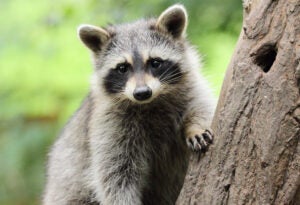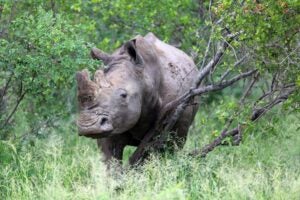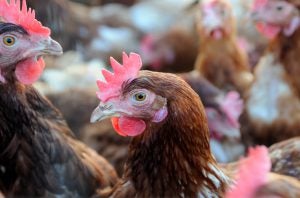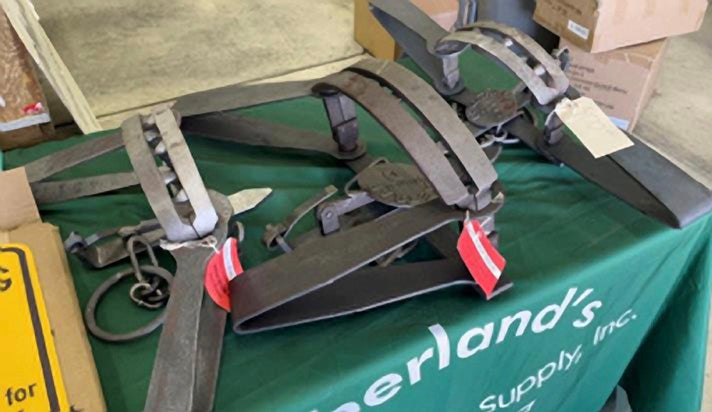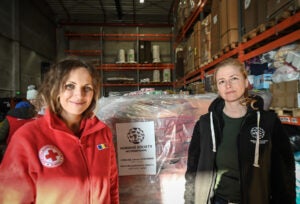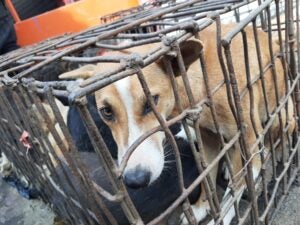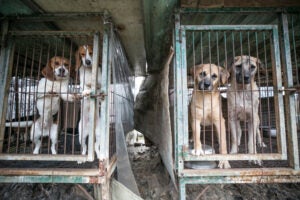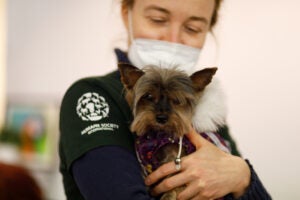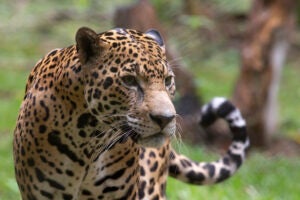
CAPE TOWN—Today, the High Court of the Western Cape granted urgent interim relief pending the judgment of the interim interdict against the Department of Forestry, Fisheries and the Environment’s (DFFE) hunting and export quotas for leopard, black rhino and elephants.
The application for the hunting and export quotas was brought by animal protection organisation Humane Society International/Africa, and was based upon HSI/Africa’s argument that the DFFE failed to comply with the consultative process prescribed by the National Environmental Management: Biodiversity Act 10 of 2004 (NEMBA) when making the quota decision. HSI/Africa asserts that the relief provided, pending the judgment of the interim interdict, will provide opportunity to fully review the Minister’s Record of Decision by which these quota allocations were made.
NEMBA prescribes a specific and comprehensive consultative public participation process that must be undertaken prior to such a decision being taken.
HSI/Africa, during proceedings, argued that the 2022 trophy hunting quota, as issued by the DFFE’s Minister Barbara Creecy, was unlawful for the following reasons:
- The DFFE announced the quotas on 25 February 2022 without consulting the public, which renders the decision invalid and unlawful;
- The notice for the 2021 quota, which was purportedly deferred to 2022 by the DFFE, was in any event defective and thus rendered any quota decisions arising from that process invalid and unlawful;
- The DFFE may not issue a quota for trophy hunting and export of elephant, black rhino or leopard without valid non-detriment findings.
In its 25 February 2022 press release, the DFFE argued that the hunting quotas allocated are based on the fact that “regulated and sustainable hunting is an important conservation tool in South Africa.” However, HSI/Africa’s 2022 Trophy Hunting by the Numbers Report contradicts this argument, confirming that 83% of trophies exported from South Africa are from captive-bred animals, non-native species or species such as caracal, baboons and honey badgers that are not subject to scientifically based management plans. Also, only 25% of native species exported as trophies are managed with a national conservation plan. Hunting animals in these circumstances cannot be understood to advance the conservation of biodiversity.
This month, Good Governance Africa released a report, authored by Dr Ross Harvey, entitled “Trophy Hunting in South Africa: Is it worth it? An evaluation of South Africa’s policy decision to elevate trophy hunting as a key conservation tool”. The report asserts that “the government’s apparent commitment to trophy hunting neither considers the opportunity costs associated with the practice nor its negative externalities”. Furthermore, it adds that whilst trophy hunting may generate some economic benefit, it is hardly enough to substantiate the overall harms that it does or to promote it as a conservation benefitting mechanism.
Tony Gerrans, executive director for Humane Society International/Africa says: “HSI has long sought engagement with the Department regarding the harm that trophy hunting causes—the damage to individual animals and to the conservation of threatened and endangered wildlife, as well as South Africa’s reputation as an ethical wildlife destination. Today’s granting of interim relief, pending the final judgment of Part A, is another step in making these harms public and ensuring they are given the necessary consideration in wildlife policy. As Good Governance’s new report demonstrates, the economic and conservation benefits of trophy hunting are materially overstated. It is not true to assert that without trophy hunting revenues, conservation in South Africa would be unfunded. More beneficial, transformational, long-term alternatives to the killing of threatened, vulnerable and endangered animals for fun already exist. Everyone has the right to have the environment protected for the benefit of present and future generations, through reasonable legislative and other measures that promote conservation.”
HSI/Africa will now await the final judgment on the interim interdict, which is expected in two weeks. The DFFE must make public the Minister’s Record of Decision that informed the quota announcement. Council will review all relevant documentation and a court will review the substantive matters basis of the quota of 10 vulnerable leopard, 150 endangered elephant and 10 critically endangered black rhino in 2022.
Species and Trophy Hunting facts:
- The leopard is listed as ‘vulnerable’ on the International Union for Conservation of Nature Red List of Threatened Species.
- The African elephant is listed as ‘endangered’ on the IUCN Red List of Threatened Species.
- The black rhino is listed as ‘critically endangered’ on the IUCN Red List of Threatened Species.
- A study detailing South Africa’s role in the international trade in hunting trophies of mammal species listed under the Convention on International Trade in Endangered Species (CITES) during the most recent five-year period for which data are available (2014-2018) demonstrated that:
- South Africa is the second largest exporter of trophies of CITES-listed mammal species globally, exporting 16% of the global total of hunting trophies, 4,204 on average per year.
- South Africa is the biggest exporter of CITES-listed mammal species in Africa. South Africa exported 50% more trophies than Africa’s second largest exporter Namibia, and more than three times that of Africa’s third largest exporter, Zimbabwe.
- Between 2014 and 2018 South Africa exported:
- 574 African leopard trophies, or 115 per year on average. 98% of African leopard trophies exported from South Africa were wild source, while 2% were bred in captivity.
- 1,337 African elephant trophies, or 268 per year on average, virtually all wild sourced. 47% of the total were exported to the United States.
- 21 black rhino trophies, or five per year on average, all wild sourced.
- About 83% of trophies exported are captive-bred animals or non-native species, and native species with neither a national conservation management plan nor adequate data on their wild populations or the impact of trophy hunting on them. This data challenges the assertion that trophy hunting is critical to in situ conservation.
- The top five species exported as trophies from South Africa are African lion (mostly captive), chacma baboon, southern lechwe (captive, non-native), caracal and vervet monkey. The most common captive-source species exported from South Africa between 2014 – 2018 was the African lion, comprising 58% of the total number of captive-source trophies exported.
- Most (90%) trophies exported from South Africa originated in South Africa.
- 68% of trophies exported from South Africa were from wild animals, while 32% were from captive animals –19% bred in captivity and 13% were born in captivity.
- The top ten importing countries of South African wildlife trophies are:
| Importing country | Percent of total |
| United States | 54% |
| Spain | 5% |
| Russia | 4% |
| Denmark | 3% |
| Canada | 3% |
| Mexico | 2% |
| Germany | 2% |
| Hungary | 2% |
| Sweden | 2% |
| France | 2% |
ENDS
Media contact: Leozette Roode, HSI/Africa media and communications specialist: LRoode@hsi.org; +27 (0)71 360 1104

